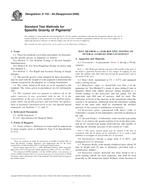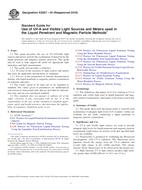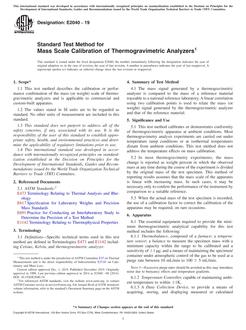1.1 This practice covers an apparatus and procedure for simulating the segregation tendencies of powders by means of the fluidization mechanism.
1.2 Powders must be capable of being fluidized in order to be tested by this practice.
1.3 Temperature- and humidity-sensitive powders may need to be tested at different temperatures and moisture contents, as would happen in an industrial environment. Further, the gas supply (type, temperature, and humidity) should also match the industrial conditions.
1.4 This standard is not applicable to all bulk solids and segregation mechanisms: while fluidization is a common segregation mechanism experienced by many fine powders, other segregation mechanisms not evaluated by this standard might induce segregation in practice.
1.5 The extent to which segregation will occur in an industrial situation is not only a function of the powder and its tendency to segregate, but also the handling equipment (for example, bin design), process (for example, transfer rates), and environment.
1.6 This standard does not purport to address all of the safety concerns, if any, associated with its use. It is the responsibility of the user of this standard to establish appropriate safety and health practices and determine the applicability of regulatory limitations prior to use.
Product Details
- Published:
- 11/01/2005
- Number of Pages:
- 4
- File Size:
- 1 file , 88 KB
- Redline File Size:
- 2 files , 170 KB


